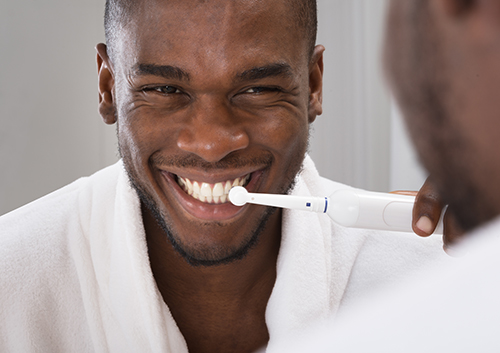How long do dental implants last?
March 24th, 2021

The average dental implant can last a lifetime if taken care of properly. In fact, studies have shown that the success rate of implants after ten years is about 90%! Of course, Dr. Ghenta and our team know that the better you care for your implant, the longer it will last.
There are a few factors that must be taken into consideration, when you are considering dental implants. These factors all play a role in how long your dental implants will last.
- Bone Structure – You must have enough bone in your mouth for the implants to be inserted. Over time, the bone can wear down and become too thin or to short. In cases, where you may have just enough bone for the implants, over the years, the bone will continue to become smaller and thinner and the implants will not last nearly as long as the suggested minimum of ten years.
- Healthy Gums – Diseased gums will not support dental implants for very long. It is important to maintain regular dental visits to maintain your healthy gums.
- Good Oral Hygiene – Just because your implants are not your “real” teeth, doesn’t mean you have to take care of them. That means brushing, flossing, and regular professional cleanings.
Bone structure, healthy gums, and good oral hygiene all play a crucial role in the length of time your dental implants will last. Whether you have full dental implants, partial implants, or a single tooth implant. The bottom line is you have to take care of them if you want them to last as long as possible.
For more tips on how to maintain the health of your dental implant, visit our Dartmouth, MA office!





 Website Powered by Sesame 24-7™
Website Powered by Sesame 24-7™